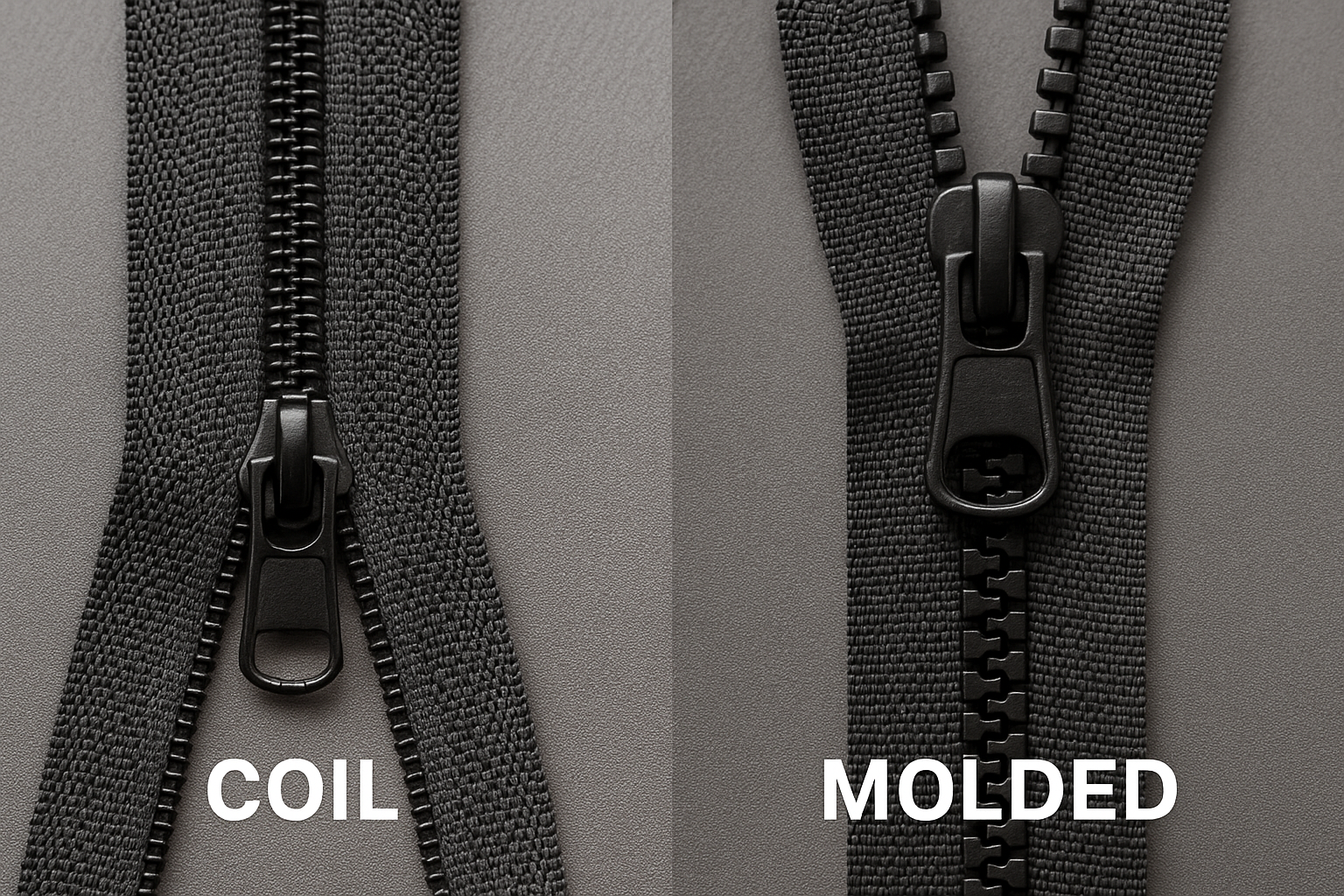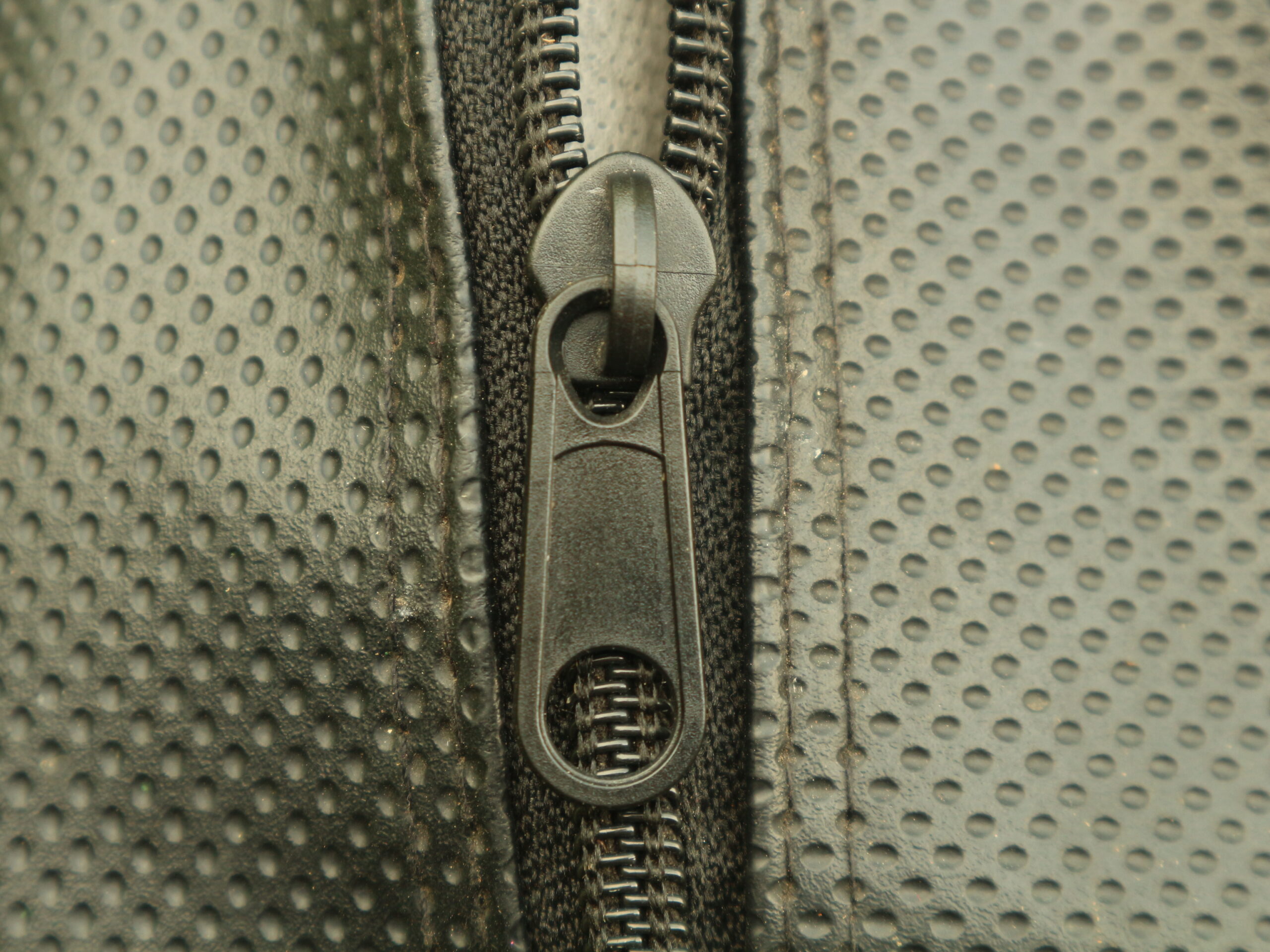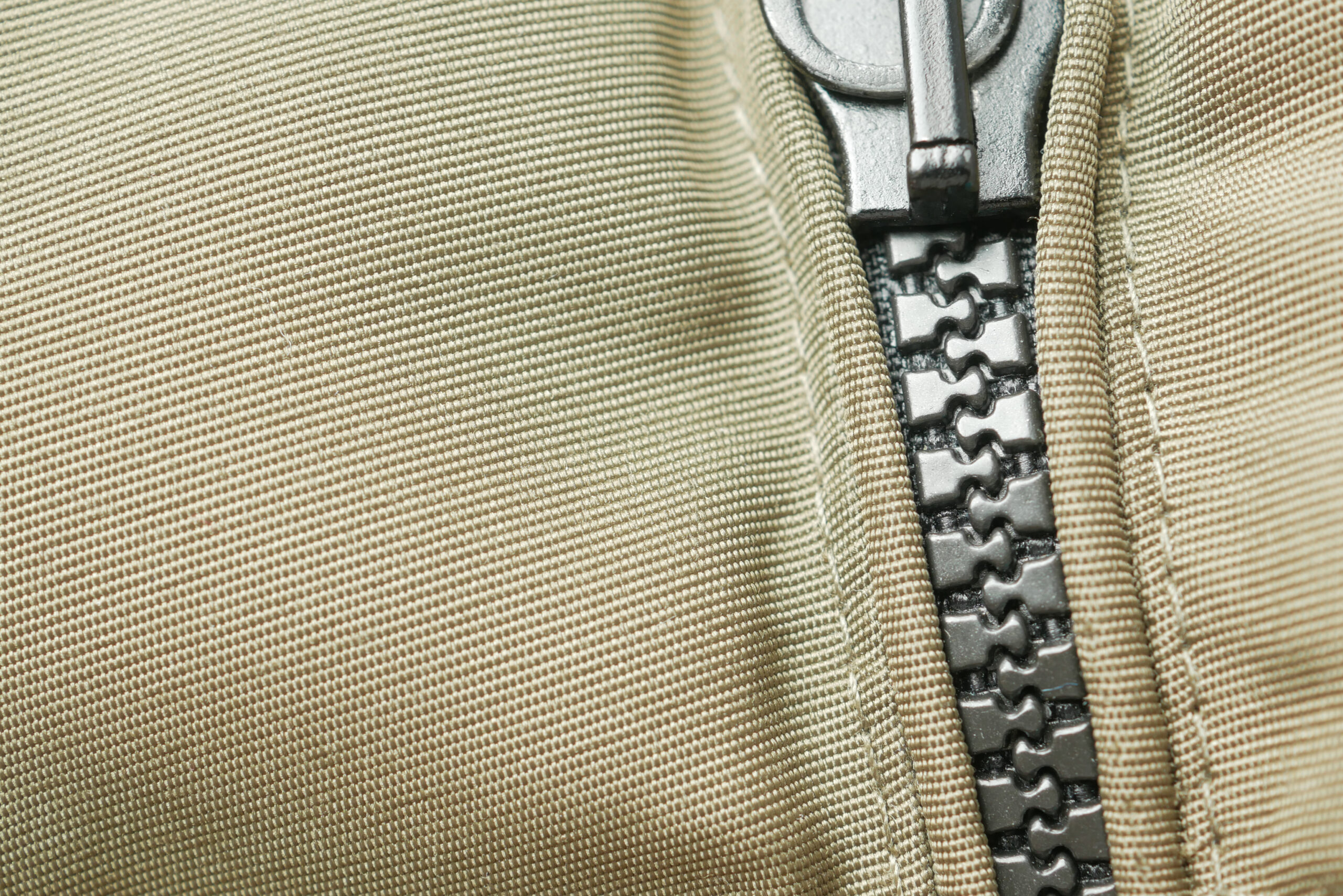When designing marine covers, industrial gear, or performance apparel, one decision plays a surprisingly big role in how your product functions: the zipper. It’s more than a closure — it’s a moving, mechanical system that must perform flawlessly under tension, moisture, and repeated use.
At LenZip, we’ve worked with every zipper material and mechanism imaginable. One question comes up constantly from engineers, fabricators, and designers:
Should I use coil or molded zippers for my application?
It’s a fair question. Both are strong, corrosion-resistant, and dependable. Yet the difference in how they’re built — and how they behave under stress — can dramatically affect flexibility, strength, and long-term reliability.
Let’s dive into the science, structure, and performance that define coil vs. molded zippers, and help you choose the right one for your environment.

At a Glance: How They Compare
| Feature | Coil Zippers (Nylon) | Molded Zippers (Plastic Tooth) |
|---|---|---|
| Material Base | Continuous nylon monofilament coil | Injection-molded acetal plastic teeth |
| Strength | Moderate tensile strength, high flexibility | High tensile strength, excellent rigidity |
| Corrosion Resistance | Excellent | Excellent |
| Water Resistance | High with laminated tape | Moderate with sealing |
| Weight | Lightweight | Slightly heavier |
| Best For | Marine covers, tents, apparel | Industrial covers, outdoor gear, PPE |
At a Glance: Key Characteristics
If coil zippers are the marathon runners of closure systems — smooth, adaptable, and consistent — molded zippers are the powerlifters: rigid, dependable, and built for sheer strength.
Both are made from durable synthetics that won’t rust or corrode, yet their performance profiles differ dramatically. Coil zippers use a continuous nylon filament stitched directly onto woven tape, allowing them to curve, flex, and operate smoothly under motion. Molded zippers, by contrast, are made from acetal resin teeth molded directly onto the tape — each tooth a tiny mechanical anchor designed for bite strength and impact resistance.
Choosing between them is less about quality and more about context. A soft-sided marine cover has different needs than a rigid outdoor enclosure. Understanding where each zipper excels helps you make the right call from the start.
What Are Coil Zippers?
Coil zippers, also known as nylon zippers, use a continuous spiral of monofilament nylon attached directly to the zipper tape. This design creates a zipper chain that bends gracefully and operates smoothly — a key advantage when the product must flex, curve, or move in use.
What makes coil zippers so adaptable is their seamless structure. Because the teeth form a continuous coil instead of individual segments, they can navigate corners, radii, and irregular seams with ease. When combined with polyurethane-coated or reverse-coil tape, they also offer excellent water resistance — making them ideal for marine and outdoor environments.
Nylon is naturally resistant to corrosion and chemicals, which means these zippers won’t rust or degrade in wet, humid, or salt-laden air. They’re common in boat covers, luggage, tents, outdoor gear, and performance apparel, where flexibility and resilience matter more than rigidity.
For deeper insight into how materials affect zipper performance, visit Unraveling the Differences: Nylon and Polyester Explained.

What Are Molded Zippers?
Molded zippers are built for power and precision. Each tooth is individually formed from acetal resin and fused directly to the zipper tape through injection molding. This design gives molded zippers a distinct mechanical bite that can withstand high tension, vibration, and repeated pulls without failure.
Unlike nylon coil, molded teeth don’t rely on flexibility — they rely on structure. Each interlocking segment forms a hard, uniform surface that resists wear and maintains its shape even under heavy loads. Acetal resin also brings impressive UV stability and impact resistance, making these zippers perfect for outdoor use where exposure to sunlight, grit, and mechanical strain is constant.
You’ll find molded zippers in industrial covers, PPE, field gear, canopies, and rugged outdoor equipment. They add a visible, structured look that complements heavy-duty materials and reinforces a product’s sense of durability.
Learn more about finishes and tooth coatings in Zipper Materials & Finishes.

The Coil vs. Molded Showdown: Strength, Flexibility, and Performance
The difference between coil and molded zippers lies not in quality but in behavior. One excels under motion; the other thrives under tension. Both meet the same ASTM standards for strength and fatigue testing — yet their performance curves diverge once the real-world variables come into play.
When it comes to raw tensile strength, molded zippers dominate. The acetal teeth grip like gears, holding firm against heavy pull loads and resisting deformation under stress. In applications like industrial tents, tool pouches, or PPE gear, where closures are constantly under strain, this strength ensures reliability.
Coil zippers, however, win in flex fatigue — how well they handle bending, twisting, and repeated motion. The continuous coil allows the slider to move smoothly along curves, preventing snags or jamming. It’s the reason coil zippers are preferred in marine covers that wrap around contoured surfaces or jackets that must bend naturally with the body.
In other words, if your product moves, choose coil. If it holds weight or endures tension, choose molded.
At LenZip, both zipper types undergo rigorous testing under our Zipper Testing Standards, ensuring every chain, slider, and tape meets ASTM and NFPA strength and fatigue benchmarks.
Water Resistance and Environmental Exposure
Although no zipper is completely waterproof, coil zippers can achieve impressive water resistance when paired with laminated or reverse-coil tape. The smooth surface of the nylon filament makes it easier to seal against moisture ingress, helping protect contents from rain or spray.
Molded zippers, on the other hand, have visible tooth spacing that limits sealing potential. They perform well in splash-resistant or weather-tolerant applications but aren’t ideal for prolonged water contact.
It’s also important to remember that terms like “waterproof” are misleading. Even the best zippers require sealing, taping, or flaps for true liquid protection. At LenZip, we describe our products accurately — water-resistant, not waterproof — because honesty matters as much as performance. Learn more about hydrophobic materials in Nylon vs. Polypropylene for Marine & More.
UV and Temperature Resistance
Molded zippers made from acetal resin are incredibly UV stable. They resist fading, brittleness, and cracking even under prolonged sunlight exposure, making them a staple in outdoor gear and PPE. Coil zippers, built from nylon, perform best when treated with UV stabilizers or paired with protective coatings.
Temperature is another deciding factor. Coil zippers stay flexible in freezing conditions, making them excellent for marine or alpine environments. Molded zippers resist high heat without softening, but can stiffen in extreme cold. Choosing based on your temperature range ensures reliable long-term use.
Chemical and Corrosion Resistance
Both zipper types resist corrosion since neither uses metal teeth, but their chemical tolerances differ slightly. Nylon coil zippers handle exposure to salt, mild acids, and cleaning chemicals with ease — perfect for marine environments. Molded acetal zippers resist most solvents and fuels, making them ideal for industrial and automotive use.
For a complete overview of zipper coatings and chemical treatments, see Zipper Materials & Finishes.
Aesthetic and Design Appeal
Beyond performance, zipper choice affects how a product looks and feels. Coil zippers provide a sleek, nearly invisible finish — ideal for soft goods, apparel, and marine covers where function blends with form. Molded zippers stand out, offering bold, visible teeth that communicate strength and utility.
Designers often align zipper style with brand identity. A luxury travel bag might use polished coil zippers for subtle refinement. An outdoor work jacket might opt for molded teeth to project toughness. Neither is wrong — both are design decisions grounded in intent.
Real-World Applications
Coil zippers dominate industries where motion and moisture are part of daily use — such as marine fabrication, apparel, and travel goods. They adapt to complex seams, resist corrosion, and allow repeated bending without failure.
Molded zippers rule in applications where strength, rigidity, and visual durability define the product. Industrial enclosures, heavy-duty tarps, and outdoor protective gear all rely on molded teeth for their grip and longevity.
Both zipper types can be customized at LenZip for cut-to-length production, tape width, and slider configuration. For more on that process, visit The Best Cut-to-Length Upholstery Zippers or submit your specs through Request a Quote.
Sustainability and U.S. Manufacturing
Today’s designers balance performance with sustainability — and LenZip helps make that balance possible. Both nylon and acetal can be recycled, and our production methods minimize waste through efficient tooling and precise cut-to-length processes.
Manufacturing locally in the United States allows LenZip to maintain short supply chains, reduce transport emissions, and uphold environmental standards that many offshore producers overlook. Domestic control also means faster delivery and reliable quality oversight from start to finish.
For an in-depth comparison, explore LenZip vs. YKK and Why Choose LenZip.
Testing and Quality Assurance
Performance matters most when it’s proven. LenZip subjects every zipper to rigorous testing under ASTM D2061 — the industry’s primary benchmark for zipper tensile, slider torque, and fatigue testing.
We also evaluate each product for corrosion resistance, UV exposure, and temperature stability using standards that meet or exceed NFPA and MIL-SPEC requirements.
Our goal is simple: to deliver zippers that perform as engineered, no matter the application.
The Verdict: Choosing What Works Best
So, which is better — coil or molded zippers? The answer depends entirely on your project’s priorities.
Coil zippers win for flexibility, smoothness, and water resistance. Molded zippers win for strength, UV resistance, and structured alignment. Both are highly durable; both can be customized for specific use cases. The key is to understand the environment your product will face.
At LenZip, our engineering team helps OEMs and designers select the exact zipper configuration — from tape width to slider type — to ensure performance under real-world conditions. Learn more at Zipper Types Explained or start a custom consultation through Request a Quote.
Conclusion: Strength Meets Flexibility
In the Coil vs. Molded Zipper comparison, there’s no clear winner — only the zipper that’s right for your needs.
Coil zippers represent flexibility, precision, and corrosion resistance. Molded zippers deliver structure, strength, and enduring toughness. Both have earned their place in modern design and manufacturing.
For over 80 years, LenZip has helped industries match the right zipper to the right purpose — from marine and outdoor gear to aerospace and industrial textiles. Because when performance is on the line, every detail matters — down to the very last tooth.
Explore more zipper insights at Zipper Materials & Finishes or see how material choice impacts performance in Polypropylene vs. Polyester.
